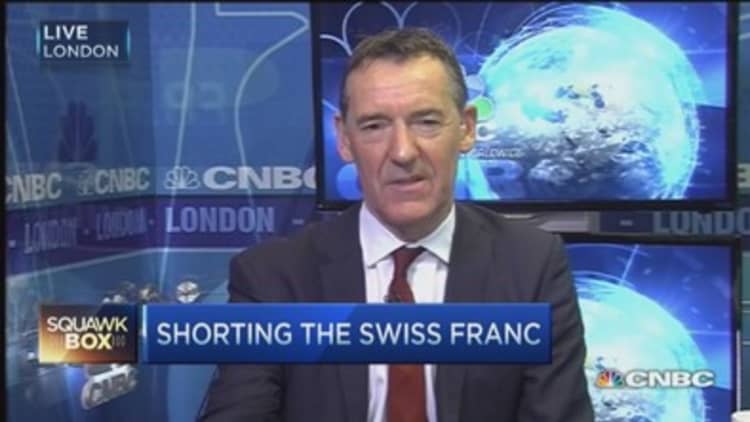
The U.S. may not be as strong as investors think because it is growing overly dependent on the consumer for economic growth, said Jim O'Neill, former chairman of Goldman Sachs Asset Management.
"When the U.S. consumer is starting to be more than 70 percent of GDP, as it's threatening to do again, the U.S. structural story is not as powerful as so many people seem to now believe it is," O'Neill told CNBC on Thursday. "It was, but it's weakening."
Read MoreBullard:Fed should lose its 'patience' on rates
A bull case emerged for the United States after the financial crisis in part because investors saw growth coming from structural improvement, rather than cyclical momentum, O'Neill said. The idea was the country would begin rebuilding its savings rate and shore up exports and investments as the consumer took a smaller role in fueling growth, he said.
That shift was beginning to take shape, but in the last year, signs are beginning to emerge that "the consumer is back to being king," O'Neill said in a "Squawk Box" interview.
"In some ways, the reason we had the whole mess in the first place is because the U.S. consumer was too much of the king," he said, referring to the financial and subprime mortgage crises.
He pointed to the role of oil production in improving the country's balance of payments with the rest of the world. Last year, President Barack Obama's Council of Economic Advisers highlighted strength in the American oil industry as one of three structural changes that would support sustained U.S. growth.
However, oil prices fell 60 percent between last summer and January. Many marketwatchers have said that is a net positive for growth because consumers will spend what they save at the pump in the broader economy, but O'Neill said collapsing crude prices are a negative for the rebalancing of the U.S. economy.
"It's not really in the U.S.'s long-term interest for oil prices to drop so sharply on a sustained basis," he said.
Read More Are oil producers running out of closet space?
The marginal economic data on Europe is somewhat better than expected and the bear case for the continent is not as interesting as it once was, O'Neill said.
While he said he is not particularly friendly to the euro currency, he believes markets must receive perpetual bad news for it to continue its descent. The euro is currently trading at about 1.13 to the dollar.
The , rather than the euro or the yen, is the clearer currency play against the U.S. dollar, he added.
O'Neill is short the franc because he believes there is no reason to put money in Switzerland following the Swiss National Bank's decision to drop its policy of capping the currency at 1.20 francs per euro and because of other recent developments in Europe.
Read More ECB could change Greek debt waiver if reforms hold
"We had this enormous rise [in the franc] that came because of the crisis and the fears of Greece leaving and the whole fears of QE," he said. "Those events have been dealt with at least for now. The Swiss franc was already far too strong for the Swiss economy."


